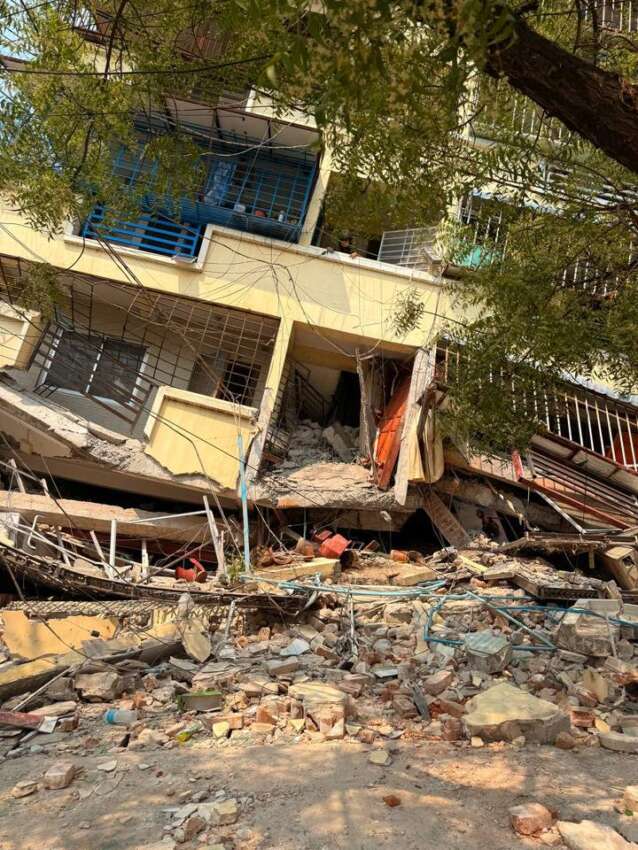
According to sources close to the Prison Department, inmates who were injured when buildings collapsed during the March 28 earthquake at Obo Prison in Mandalay are being left without adequate medical treatment. The authorities have neither cleared the debris from collapsed buildings nor relocated prisoners from structures that are at risk of collapse. The situation has created dangerous conditions for the inmates who remain housed in buildings that sustained damage during the earthquake.
The earthquake caused multiple building collapses that resulted in deaths and injuries among both political prisoners and other inmates. Despite the severity of injuries sustained, wounded prisoners are being denied proper medical care. Particularly concerning is the refusal to allow seriously injured inmates who require external hospital treatment to access such care, according to Ko Thike Tun Oo from the Political Prisoners Network Myanmar (PPNM). The current situation at the prison is dire, with urgent needs for tarpaulins and medical supplies.
Sources close to Obo Prison have expressed grave concerns that if another earthquake occurs, there could be mass casualties among prisoners still housed in structurally compromised buildings. The March 28 earthquake caused the collapse of Women’s Ward 1 and Ward 2, resulting in the confirmed deaths of 12 people, including political prisoners Moe Thu Zar Khaing, Daw Lae Lae Soe, Daw Khin Ohn Shwe, Ma Kay Kay Win, Ma Pa Pa Win, and Ma Phyu Wai Wai. Prison authorities have failed to implement necessary safety measures or provide adequate medical care for survivors, creating an ongoing humanitarian crisis within the facility.



